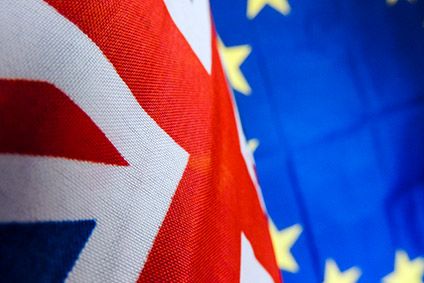
A so-called no-deal Brexit will mean changes to the “health marks” carried on meat, dairy and fish products, the UK government has advised.
Under current regulations, companies cannot produce or process meat, fish or dairy products for sale unless the produce carries an appropriate health or identification mark under EU Regulation 853/2004, Articles 4 and 5.

Discover B2B Marketing That Performs
Combine business intelligence and editorial excellence to reach engaged professionals across 36 leading media platforms.
The mark must be oval in shape and state that the food is produced in the EU, the member state it is from and the firm’s unique approval number.
If the UK and EU fail to strike a deal over the country’s departure from the bloc by 29 March, the marks would have to change, London said today (12 October).
For example, the UK would not be entitled to use any abbreviation in the marks that implies membership of the EU. The UK government said “the aim is to keep any change to the health and identification marks as simple as possible, minimise the impact on industry and ensure continued recognition by consumers in the UK, EU and countries that we export to outside the EU”.
It added: “The new health mark design would need to meet the EU’s requirements for a third country health and identification mark to ensure recognition by EU countries. As a minimum, the EU abbreviation would have to be removed from the health and identification marks.”

US Tariffs are shifting - will you react or anticipate?
Don’t let policy changes catch you off guard. Stay proactive with real-time data and expert analysis.
By GlobalDataGovernment agencies are working on new designs ahead of 29 March, the date when the UK is set to leave the EU in case changes are needed should the country’s departure take the form of a no-deal Brexit.
There is more than one instance when the UK could leave without a deal. By 29 March, the UK and the EU need to find a deal on issues included in their “withdrawal agreement”, announced in March this year, and which focused on issues such as the Irish border and citizens’ rights.
If that goes smoothly, a transition period kicks in that lasts until December 2020 when the UK is looking to have struck a trade deal with the EU. The first case is seen as the worst kind of no deal, although either way there would be no trade deal.
With the 29 March deadline approaching for the UK to reach a Brexit deal with EU negotiators, London is rolling out a series of advisories to help specific industries prepare for a no-deal scenario.
Today’s notice on health marks follows similar advisory notices in areas such as health certificates on animal products, plans for geographical indications and changes to food labelling.





